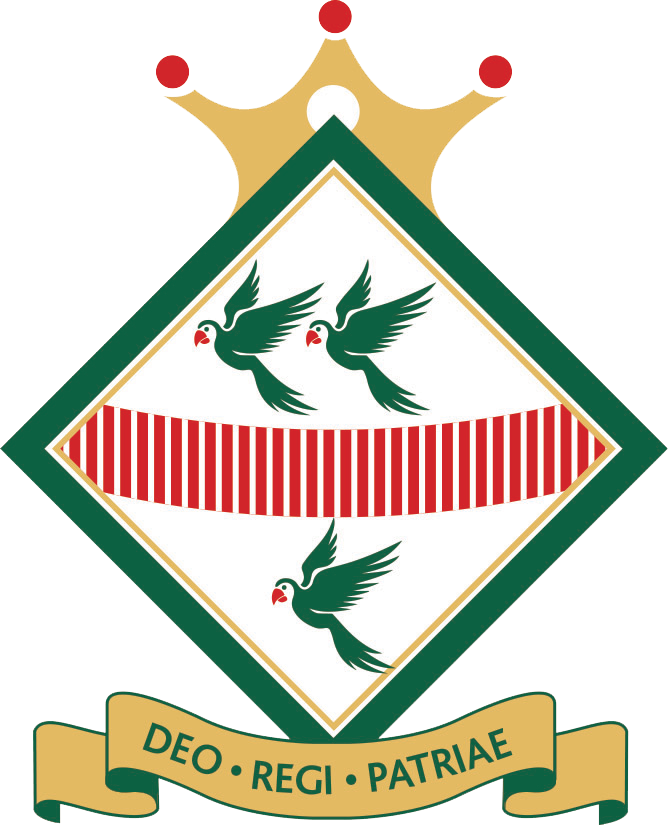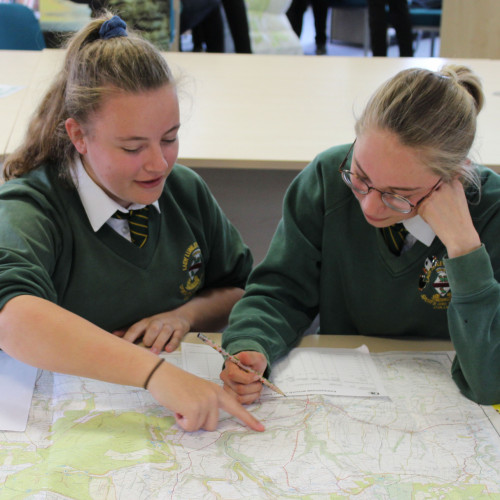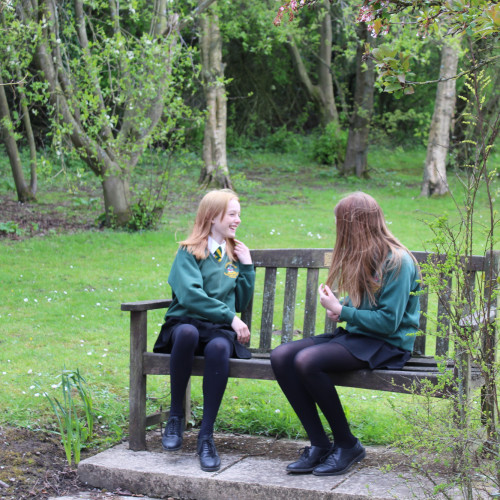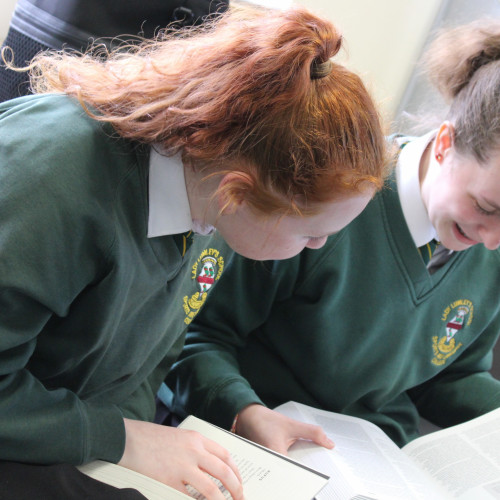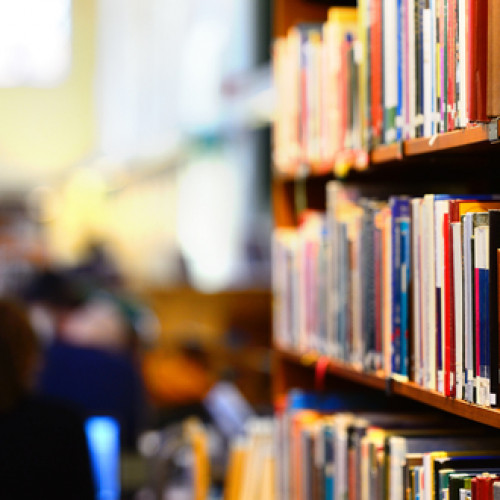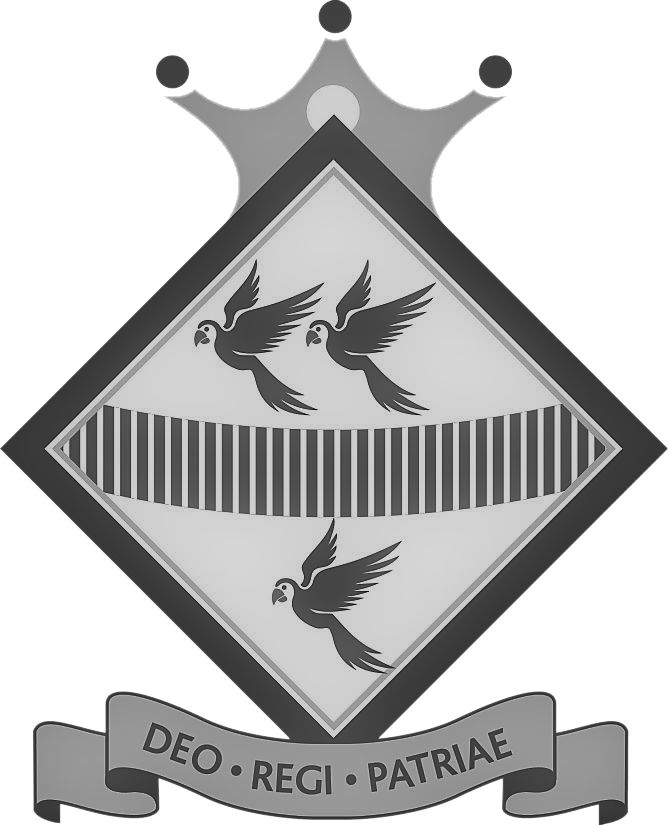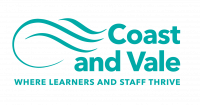Art and Photography
Key Stage 3
KS3 students have one hour of art a week in mixed ability groups. The key skills of drawing, painting and developing ideas are taught through project-based work that require students to learn through practical experience. Students are taught to understand visual stimuli and will develop skills and techniques in a range of different media and approaches. Students are given opportunities to develop their creativity and ideas in response to past and contemporary artists, architects and designers. Students are also taught to understand how their work is assessed, how to get help with feedback and make improvements to their work.
Year 7:
Themes explored:
Face parts and faces, Celtic designs, knots and crosses, Land art, The Greenman/woman and fantasy hybrid creatures.
Skills and ideas which are taught and developed:
Tonal variation through pencil shading, observational drawing skills, proportion and measuring, how to create depth and form, monochromatic colour blending and layering, watercolour painting skills, foundation colour theory knowledge, decoration in Celtic art and ideas of growth and decay related to the environment.
Year 8:
Themes explored:
Pop art and metallic objects, Typography, Street art
Skills and ideas which are taught and developed:
Tonal effects to create surface illusion, paper construction of lettering, how to draw and adapt 3D shapes, observational drawing skills, compositional devices, pen and water skills, colour impact, how lettering and slogans have been used in art history, lettering design application, the value of art and consumer culture
Year 9
Themes explored:
Surrealism, shoes and WW1, Cubism and distortion, dazzle ships and lettering, futuristic and radical art and architecture, alien landscapes
Skills and ideas which are taught and developed:
Alternative drawing and art techniques, chance approaches and juxtaposition, metamorphosis and transformation in art, photomontage, joiner photography and collage, observational drawing and mixed media painting skills, how do we experience the world, distorted self-image and media representation, how has modern art influenced architecture, fashion, film and photography.
Enrichment
There is a one-hour Art Club for Key Stage 3 after school where students can use the art spaces and resources to enhance their art skills.
Useful Links:
- http://www.tate.org.uk/learn/online-resources
- http://www.bbc.co.uk/learning/subjects/art_and_design.shtml
- https://www.studentartguide.com
GCSE Art
All GCSE projects have a broad starting point, such as ‘Inside/ Outside’, ‘Old and New’, ‘Transformation’ or ‘Surface’. Students will explore the varied starting points relating to the theme by producing mind-maps, sketches, drawings, prints and painting. Students can utilise photography and are advised to use first-hand sources to explore intentions and research styles and concepts. Students gain confidence in their ability to use different art media and a greater awareness of the assessment criteria is developed through verbal and written feedback. At KS4, students have 5 lessons a fortnight to develop different projects for their coursework/portfolio unit which makes up 60% of their GCSE mark. In Year 11, students choose an externally set starting point which is worth 40% and will develop a further project from this. The outcome of this project will be produced under supervised conditions.
GCSE Art Specification:
Enrichment
There is a one-hour enrichment session for Key Stage 4, where art students can use the art spaces and resources and gain additional tuition to improve their artwork. We also run an art trip dependent on where exhibitions are being shown. These have been to Liverpool, to the Tate and Walker galleries, as well as Newcastle to the Baltic and Laing galleries.
Useful Links:
- http://www.tate.org.uk/learn/online-resources
- http://www.bbc.co.uk/learning/subjects/art_and_design.shtml
- https://www.studentartguide.com
A Level Fine Art
Fine Art at Key Stage 5 allows students greater decisions in the direction of their artwork from agreed starting points. Students can use a wide range of approaches and varied drawing, painting and photographical approaches to explore and respond to their chosen areas of study. Students build upon their previous experiences and are challenged to research their influences in depth so that contextual influences are understood within the history of art and culture. In Year 13, an extended piece of writing of between 1000 to 3000 words will be produced alongside a practical portfolio. This coursework will amount to 60% of an overall mark and the rest of the marks will come from an externally set starting point project. Alongside their timetabled lessons, students have the freedom to continue their art in a dedicated sixth form art room and can access resources independently.
A Level Photography
Photography at Key Stage 5 also allows students greater decisions in the direction of their creative endeavours. Traditional, digital and experimental photography is explored, and students are encouraged to refine their chosen areas of expertise. Students build upon their previous visual experiences and are challenged to research their influences in depth so that contextual influences are understood within the history of photography and art. In Year 13, an extended piece of writing of between 1000 to 3000 words will be produced alongside a practical photography portfolio. This coursework will amount to 60% of an overall mark and the rest of the marks will come from an externally set starting point project. Alongside their timetabled lessons, students have the freedom to continue their photography responses and presentation in a dedicated sixth form art and photography room where photo shoots can be staged.
A Level Fine Art and Photography Specification:
https://www.eduqas.co.uk/qualifications/art-and-design-as-a-level/#tab_overview
Enrichment
We also run a Key Stage 5 art and photography trip depending on which exhibitions are being shown. These have been to Glasgow and Edinburgh, Liverpool, to the Tate and Walker galleries, as well as Newcastle to the Baltic and Laing galleries.
Useful Links:
